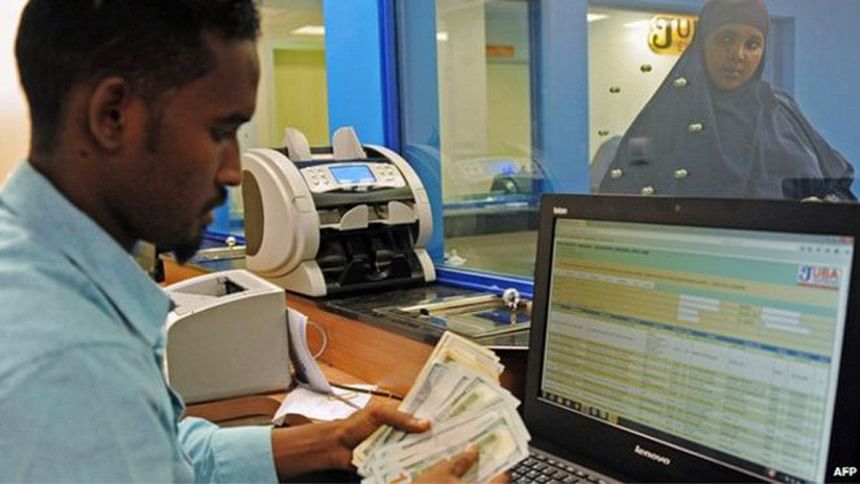Remittance continues its slide

Remittance continued its downward trajectory into the new year, declining 12.27 percent year-on-year to about $1 billion in January.
During the July-December period of the fiscal year, remittance slumped 17.63 percent to $6.17 billion.
The central bank in its latest monetary policy blamed the slow growth of remittance on the global price fall of oil. Some other factors, including illegal mobile banking, are also responsible for the sluggish growth, said Bangladesh Bank Governor Fazle Kabir.
However, January's receipts were 5.28 percent higher than the previous month, according to Bangladesh Bank.
The central bank has taken a number of measures -- from immediate to short-term -- to identify the reasons behind the fall in remittance through the banking channel.
“We will do a research to find out the reasons. We hope to get the findings in a month,” Kabir said on Sunday.
The research team will visit Saudi Arabia, UAE and some other Southeast Asian nations where Bangladeshi expatriates live.
Bangladeshi embassies and high commissions in countries where a huge amount of remittance comes from have been alerted so that unscrupulous quarters cannot remit money through illegal channels like hundi, Kabir.
“We are also assessing whether banks are charging higher commission for transferring remittances,” he added.
The exchange rate is also responsible for the slower remittance inflow as expatriates get higher prices for dollars in the kerb market.
As of January 31, the interbank exchange rate against the dollar stood at Tk 79, whereas in the kerb market the rate is hovering between Tk 83 and Tk 84.
Slower remittance growth has hit the current account balance negatively and widened the balance of payments.
The current account balance turned into negative $726 million and trade deficit widened to $3.88 billion during the July-November period of fiscal 2016-17, according to the central bank data.

 For all latest news, follow The Daily Star's Google News channel.
For all latest news, follow The Daily Star's Google News channel. 



Comments